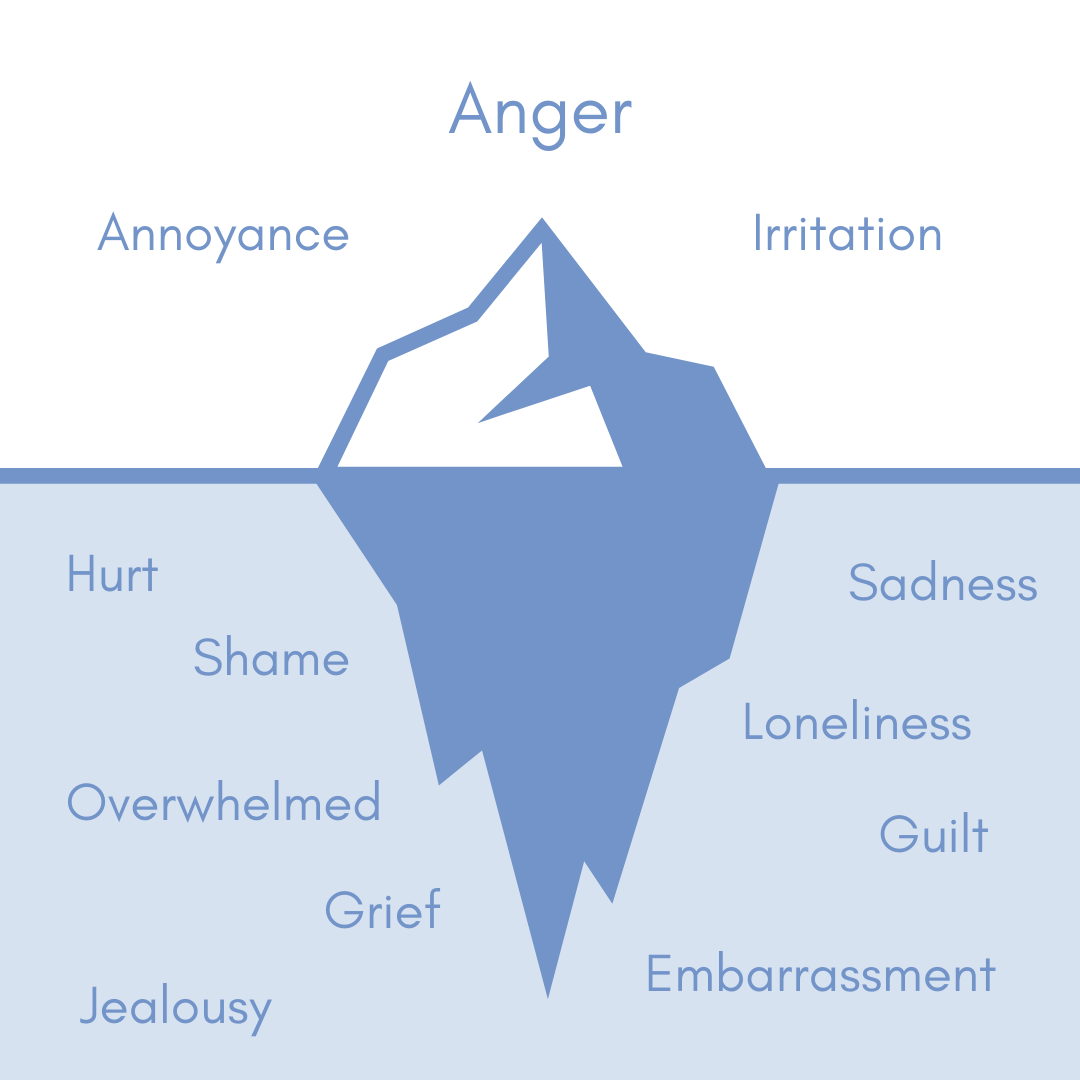Is it Anger or something else?
Often times when you or someone you know expresses anger, it is usually in place of other emotions that are harder to feel. Hurt, grief, sadness, embarrassment, shame, guilt, loneliness… These are much harder to feel and can leave a person feeling powerless.

Anger is a very misunderstood and misinterpreted emotion.
Often times when you or someone you know expresses anger, it is usually in place of other emotions that are harder to feel. Hurt, grief, sadness, embarrassment, shame, guilt, loneliness… These are much harder to feel and can leave a person feeling powerless.
On the other hand, anger is the subconscious mind attempting to regain some power. Because the mind wants to protect you, the moment you feel your needs aren't being met or you feel threatened, it makes sense that your response is to try and regain some power in the situation and therefore your response reflects that desire.
For example, you are talking and you feel unheard or ignored. Your subconscious is most likely feeling really hurt and powerless in that moment. Instead of experiencing and expressing those painful feelings, you might react angrily toward the person who was not listening to you.
Sometimes it can be an anger spiral, where you react to something with anger, you then feel guilty about your reaction, but because it hurts too much to feel guilt, instead you respond again with more anger and the spiral continues.
You can think about it like an iceberg. There are emotions that are visible above the water (e.g. anger, irritation) and then there are all of these other emotions that usually lie below the surface in your subconscious (e.g. hurt, guilt, shame). Don't forget that there is more to the experience than what you can see on the surface.
Next time you find yourself or someone else reacting in an irritated or angry manner, see if you can work out what the underlying emotions might be and try to communicate about those instead. Often times there is an unmet need behind arguments. You or the person who is angry (hurt) might not know what that unmet need is, but figuring this out will be far more helpful than focusing on the angry reaction.


